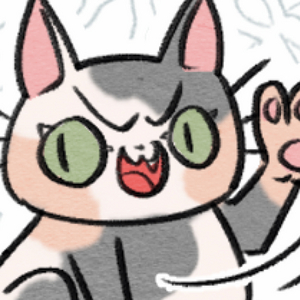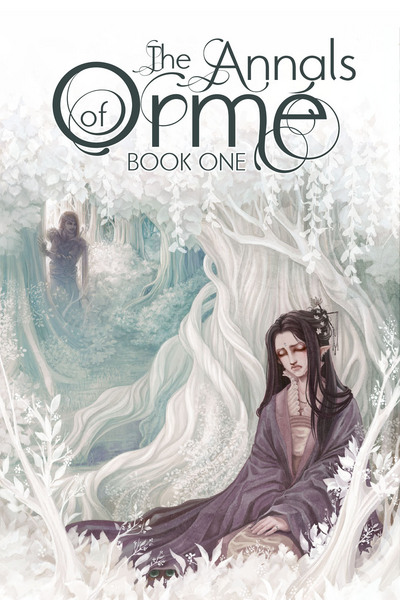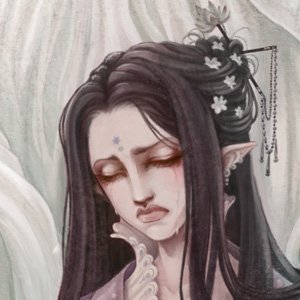Chapter 2
Yalet
The Empire of Nejim
The City of Tijar
Zalas’s eyelids slid open, and he winced as the pupils of his garnet-colored eyes shrank to pinpoints. He was sitting cross-legged on a large, flat cushion made from a yellow damask material, his gold and purple robes spread about him. The black-tiled floor of his audience hall shone like a dust-covered mirror, reflecting the harsh afternoon sunlight up the gold-paneled walls to the vaulted ceiling. This made the long, rectangular hall feel much more like the interior of a lit oven.
Finally free of his self-imposed meditation, Zalas’s ears were once again filled with the grating voice of the bleary-eyed man who knelt before him. Zalas still wasn’t ready to process that voice in words, and instead looked up and beyond the man’s shining, hairless head to the open balcony window on the other side of the hall. There used to be a grand inselberg standing in the far distance, like a black cloud hovering over the desert, but no more. In his forefathers’ time, the mountain was tall enough to eclipse the sun at times, but now Mount Thayl had been gutted to the point that it resembled a moldy hunk of cheese that was beginning to collapse in on itself. Generations of excavation had all but destroyed it.
Zalas knew Yalet was an ugly world; his slaves—pathetic Naltites secretly stolen from Zaidna—often complained of that fact. While whipping them for their insolence, he often recalled his own father speaking passionately of Zaidna’s beauty, and how cruelly the Anotites had been chased from it through the parting by the vengeful goddess Naltena. His father seemed to think their ancestral home had been as lush and verdant as Yalet was crusty and bitter.
But Zalas had no desire to travel beyond the parting to see whether his father was blind or simply mad. Even though it was unpleasant to have his body baked by Yalet’s sun on a daily basis, he could never long for a world he had never set foot on, no matter how green and moist his father claimed it was. Besides, plenty of progress had been made over the last few centuries, and through irrigation and ormé, his people had managed to transform much of the desert immediately outside of Tijar, the capital city of Nejim, into useful farmland.
The old man’s ramblings finally tore through Zalas’s idle musings, forcing him to return to the task at hand. “And in conclusion, Emperor Zalas,” sniffed the noble, “I want my supposed ‘family’ and ‘friends’ to answer for hurting me so deeply.” The old man bowed his head, his face papery and creased with greed. Zalas wanted nothing more than to wrap his hands around the man’s shriveled neck in order to silence his wheezing, spotted lips.
Instead, Zalas simply sighed. “What would you like to be done?”
“Well,” the old man sputtered. “I want them to write notes of apology to me, for a start. You’re the emperor, so you could easily order them to do that.”
Zalas slumped in exasperation. “You want me to what?”
“You could force them to write apology notes to me. Send a decree if need be. As I said several times already, I hinted to them time and time again that I wanted to have a party thrown for me in commemoration of my ninetieth Naming Day. I think that we can all agree that ninety years of life is a significant achievement!”
When Zalas was still the high prince, he believed that becoming emperor would elevate him above all other nobility. After all, his first ancestors had been chosen as emperors by Anoth and the Orb itself. But now that he was the emperor, he was becoming increasingly aware of how meaningless the title truly was. “So, you are angry that your friends and family did not throw you a party,” he finally muttered. “Does such a matter really merit an audience with the emperor?”
“Of course it does!” the crumpled sack of a man declared.
Zalas shut his eyes for a moment. “You should realize that these people likely didn’t want to throw you a party because they consider you to be an old nuisance.”
The noble puffed up his chest, which made him resemble a pillow that had been overstuffed with twigs. “Well I never!”
Zalas shrugged off the glares from his advisors and calmly placed his palms on his knees, leaning forward to look the noble directly in the eyes. “Do go away, old man, and settle the matter yourself!” He waved both of his hands in dismissal, his sleeves falling over his knuckles.
The noble picked up the skirts of his robe and stood up on bowed legs. Huffing, he shuffled straight out of the hall, grumbling his displeasure all the while.
When the old man was gone and the slave at the entrance had sealed the doors for the umpteenth time that day, Zalas smiled. Now that was satisfying. But his advisors were not quite so pleased, and they whispered disapprovingly back and forth around him until one of them bent forward and hissed, “Emperor, Master Anoth wishes for you to mediate the contentions of his people, even if they might seem . . . trivial. It would have been a simple matter to send notices to the old man’s kin asking them to apologize.”
Zalas shook his head in annoyance. He was the emperor of Nejim, not a wet nurse. He opened his mouth to vocalize his displeasure but was interrupted by his wife, who was sitting behind him as she usually did during these audiences. He liked her better when he could pretend that she didn’t exist.
“He’s right, you know,” the wretched cow bayed through her nose. “You were mean to that sweet old man.”
Instantly enraged, Zalas glared over his shoulder at her. By Anoth’s malformed ears, what a detestable creature she was! She had grown so fat during her pregnancy with his first child that he now saw her like a large grub, coiled up and pulsating in her cocoon of white silk. And all this just to produce a legitimate heir.
Once, Zalas had enjoyed a fulfilled life, mastering the supple bodies of countless maidens, but none of the bastards he might have sired could have any claim over the throne of Nejim. He had to be wed, and at the age of just thirty, Anoth forced him to marry this contemptible lump, not for love or lust but because she was born under a high house of ormé and would bear him talented children.
Zalas’s eyes drifted over to a female slave at the far end of the hall. He had developed a taste for dalanai women, even from a young age. While most of the empire’s slaves consisted of beshtats, the ormé-less original inhabitants of Yalet, there were other slaves who were plucked from Zaidna during one raid or another and brought to excavate Mount Thayl or serve in the noble district. He might have very little political power, but being emperor did have its advantages, specifically in his pick of bed slaves.
This particular dalanai slave was an unusual sight in court. Like all dalanais, she was tall and slender, with fair skin, which was a stark contrast to her eshtan counterparts. But unlike the old, broken dalanais who usually served in the court, this one’s breasts did not droop, nor did she seem ridden with disease. She was fleshy for a dalanai, and her face was clear of wrinkles and pockmarks. She even had enough dignity left to try hiding her tail beneath her short shift. Why was she here instead of tending to a nobleman’s bed?
“Slave,” he called to the dalanai, interrupting his wife’s blathering. “Go and bring in the next parasite!” He watched with interest as the slave turned obediently toward the doors. His curiosity at the shape of her rear quickly turned into revulsion when he saw her bare shoulders and back. What had surely been perfect, velvet flesh at one time was now swathed with innumerable raised scars in overlapping layers of red, pink, and white. Perhaps her former master had enjoyed their violent “sessions” until even he found her too scarred for his tastes. Still, Zalas mused, he might be able to ignore the scars as long as he didn’t accidentally roll her over in bed.
The slave drew open the ebony-plated doors and stiffly exited the audience hall, returning a moment later with the sounds of footsteps and weeping following her. A young nobleman entered, followed by his wife, who was carrying a small infant swaddled in her arms. The woman was in hysterics, while the man’s face was deformed with anguish.
Three hadirs entered the audience hall directly after the nobles, which caused Zalas to frown. Hadirs always seemed to have an aura of disarray surrounding them like an invisible swarm. He knew very few of the hadirs before their conversions by Anoth’s hand, but any encounter with a hadir always became a memorable one.
Storming ahead of the other two hadirs was Tovam the albino, whom Zalas knew to be a sadist and highly accomplished prick. His braided hair, which trailed down the length of his spine, was frost white, and his eyes shined like the blade of a dagger. Among all of the hadirs, Tovam frightened Zalas the most, for he was the eldest hadir, and the most powerful, having been the very first to be changed from mortal eshtan to immortal abomination.
Tovam strode past the weeping nobles with barely a whisper issuing from his boots and didn’t bow or kneel to Zalas, nor did he even bother to nod in greeting. “These nobles have asked to see you,” he sneered. “We received word of their child’s deficiency in ormé and intended to rectify the matter ourselves, but they refused to let us take it, citing Anoth’s decree that the emperor should mediate such—undesirable situations.” Tovam’s slanted eyes narrowed furiously. He clearly did not take pleasure in being bound by all of Anoth’s laws, even if he enjoyed enforcing most of them.
The noblewoman, still clutching her child to her breast, broke free from her husband’s grasp and rushed ahead of the hadirs, dropping to her knees. Zalas flinched, expecting Tovam to exact swift punishment on the foolish woman, but he merely snorted. “Please, Emperor, do not make me give up my daughter!” Tears beaded up in the woman’s eyes and rolled down her already wet face. “It’s not her fault that she was born under the first house!”
A slow smile curled Zalas’s lips. Not only was this a matter actually worth mediating, but these nobles were showing the proper respect for his authority as emperor. “No, it is not her fault,” Zalas agreed, his tone turning appropriately delicate. “But she was born under the first house, and that does have consequences.”
All the blood drained from the nobleman’s face, while the woman wailed as though she had been stabbed through the heart. Tovam, standing above both Zalas and the noblewoman, crossed his arms before his leather cuirass. Like all hadirs, his arms were covered with dozens of interconnected glyph scars.
Out of the corner of his eye, Zalas could see the fidgeting of his advisors. Behind him, his wife gave a soft sniffle. Perhaps she was considering what fate would befall their own child should it be unfortunate enough to be born under a low house of ormé.
“Well? What is your decision?” Tovam demanded. “I’ll happily split the babe open like a melon if you have no other instructions.”
Zalas looked again at the young, lamenting parents, and then to Tovam’s detestable face. Usually, the hadirs acted as judge, jury, and executioner in these matters, leaving Zalas out of them entirely, but the unusual rise in untalented children convinced Anoth to at least allow the nobles to make their cases heard.
“The problem with this situation is that this child was born under the lowest house of ormé,” Zalas explained. “You know that there is a blight among our people. Since the loss of the Orb, ormé has been fading and must be carefully preserved. We cannot risk any more dilution of ormé among our nobility. That is why we must cast out the weak and bring the rare commoner born under a higher house of ormé to live among us. This is the law.”
Sobbing bitterly, the young mother nodded. “But I can’t leave her in the desert!” Above her, Tovam growled, clearly almost out of patience.











Comments (0)
See all